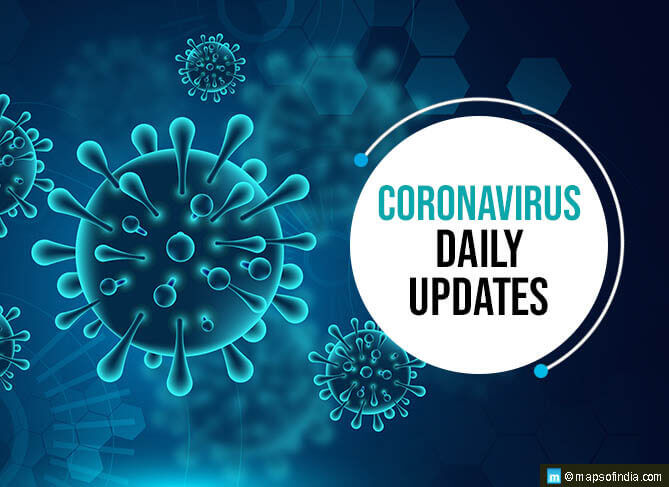The coronavirus crisis has hit people badly, particularly the second wave in India, which left patients gasping for essential oxygen supply. Since the beginning of the pandemic, it has affected many people with varied symptoms, including asymptomatic ones. There are two vaccines, namely Covishield and Covaxin, manufactured in India to tackle the deadly virus. As per mygov.in, 20,57,20,660 people have been vaccinated in three phases: Frontline workers, people aged 45 and above and people aged between 18-44.
While the government talks with vaccine manufacturers for making other vaccines in use, other medical techniques and innovations are going in India to combat the novel coronavirus. One of them is antibody therapy or antibody-drug cocktail. Let us understand its significance and more details about it in this article.
The latest clinical studies have revealed that antibody therapy or antibody-drug cocktail can lower hospitalisation cases by 70% in patients having mild to moderate COVID symptoms, which prevents any deterioration. It is a mixture of two fast-acting antibodies-Casirivimab and Imdevimab. The intravenous infusion takes approximately 20 to 30 minutes. Four syringes of 2.5 ml (2 each of Casirivimab & Imdevimab) must be injected for the subcutaneous route, concurrently at four different places on the abdomen or thigh. The patient remains under observation for at least an hour. The same was administered to former US President Donald Trump last year.
Taking to Twitter, Dr Arvind Singh Soin said that the COVID Antibody cocktail for high-risk patients is now available as a patient named Mohabbat Singh, an 84-year old from Haryana, became the first at the Medanta hospital as well in India to receive it on May 26.
According to the formal statement issued by Cipla limited and Switzerland based Roche, the first batch of the Roche antibody cocktail drug reached on May 24. The drug is structured particularly to avoid the spread of SARS-CoV-2. The monoclonal antibodies result from recombinant DNA technology, and they are artificially developed in a laboratory and tailor-made to battle against a specific disease.
What are antibodies?
Antibodies act as a safeguard to human bodies and support defence mechanisms against a disease like coronavirus. They are simply proteins that the body develops to protect itself against any foreign invaders, namely bacteria, viruses, fungi or parasites. Dr Warner Greene, The director of the Center for HIV Cure Research at the Gladstone Institutes in San Francisco, Dr Warner Greene stated that antibodies are released from the cell, and they go out and hunt.
They are also known as immunoglobulins (Ig) and have the fundamental Y-shape with five different variations that act according to the immune system. These are IgG, IgM, IgA, IgD and IgE.
Describing the functionality of antibody-drug, Chairman of Medanta hospital, Dr Naresh Trehan, said, “If these antibodies are injected into a patient infected with the Covid-19 virus at an early stage when the virus is trying to multiply then it blocks the virus from entering the cells of the patient from where it derives nutrition to multiply. So by blocking the virus they are stopping the multiplication of the virus and finally the virus spikes. It is one of the blocking mechanisms that is working against the Covid-19 virus.”
Chairman of Fortis Escorts Heart Institute (FEHI), South Delhi and cardiologist Dr Ashok Seth believes that in resemblance to the antibodies, the proteins that the human body develops to shield itself against disease, monoclonal antibodies are “artificially created in the lab”.
He added that the therapy is appropriate for 65-year-old (particularly with comorbidities such as heart ailments or liver disease, heart ailments or chronic lung disease) and above to take it within the beginning of symptoms in the first days and the patients under home isolation who do not require oxygen support, therefore the cut-off level of SpO2 is nearly 93%.




